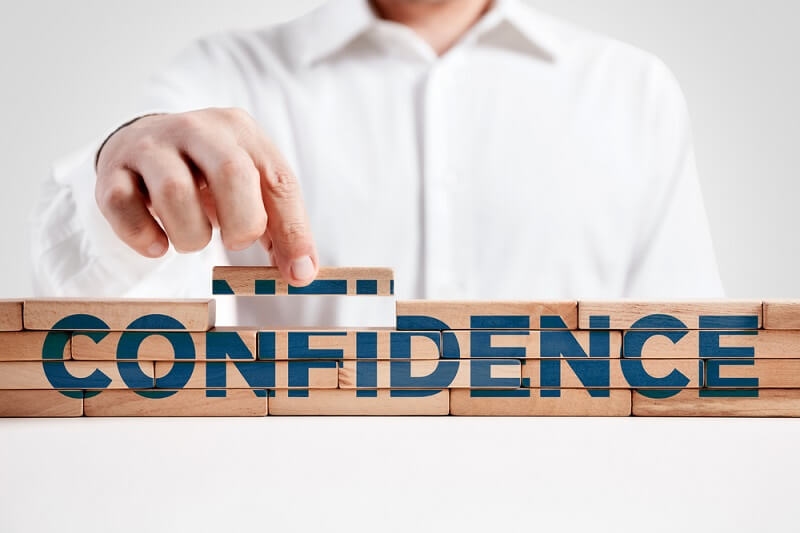
If you are looking to develop confidence, you are not alone. Many individuals experience insecurity, fear of failure, or hesitance to act in social or work contexts. The reality is that confidence is not something one is born with; it is a skill that can be learned. By focusing on confidence-building processes, using helpful self-esteem development strategies, and deploying confident personal strategies, you will gradually improve your trust in yourself and fill your self-doubt gap.
Building confidence does not require pretending to be smart or capable. It requires accepting your strengths, learning lessons from failures, and developing a mindset to boost daily confidence. This article will review practical steps for building a belief in yourself, inspired by research-backed advice and strategies you can apply immediately.
Confidence is essential in nearly all areas of life. From career progression and leadership roles to relationship dynamics and personal growth, people who build confidence tend to be more successful. They are more comfortable taking risks, recovering faster from setbacks, and approaching life with confidence.
Plain and simple, if you prioritize confidence, you provide yourself with the foundation to excel in all aspects of life.
Before developing confidence, you should understand the origins of low confidence. Common origins include:
Knowing these triggers is the first step to applying confidence-building strategies that are genuinely sustainable.

To build your self-confidence, you require purposeful habits. Below are tested confidence-building strategies that will yield long-term results:
Your mind has a direct effect on how you feel. Swap those damaging statements like "I can't do it" with helpful ones like "I'll do my best at this one." This easy reframe builds up resilience over time.
Divide big goals into smaller, achievable tasks. Every small victory boosts your enthusiasm and confidence in overcoming bigger tasks.
Affirmations are cheesy but do work when practiced. For example:
Your environment matters. Be with people who help you thrive, not those who keep you doubting.
Your confidence will build as you show yourself that you can do hard things.
Take baby steps—try a new activity, express yourself in a meeting, or approach a stranger.
Self-esteem is the foundation of confidence. Without it, even short-term motivation loses steam. Here are practical self-esteem growth tips:
When these self-esteem-building strategies become part of your daily habits, they slowly increase your ability to boost your confidence daily.
Self-doubt is one of the most significant barriers to achievement. The inner voice that chants, "You're not enough," or "What if I fail?" can be immobilizing. But, again, doubt does not need to rule you.
When there's doubt, question yourself: "What's the evidence for and against this belief?" Most of the time, fears are overblown and unfounded.
Don't see failure as evidence that you're not good enough. Instead, regard it as feedback that brings you closer to becoming better.
Action generates confidence. Each time you act despite doubt, you break its grip over you.
When you actively apply these steps, you will not only be able to defeat self-doubt but also have the confidence to take on new risks.
Confidence is not just about attitude—it's also about doing. These personal confidence exercises can be engaged in daily to improve trust in yourself:
Incorporating these personal confidence exercises into your daily life will improve your confidence goals and support your inner resiliency.
Consistency is everything. If you really want to build confidence daily, here are easy but effective steps:
These small steps accumulate over time, resulting in deeper, more enduring confidence.
These stories show that confidence is not just an innate gift—like any other skill, it can be learned.
With these myths debunked, you will now understand that you can learn to be confident at little cost instead of waiting for the best opportunity.
Confidence may not remove obstacles, but it does enhance your ability to manage. Confident individuals recover quickly after setbacks because they:
Here’s an easy roadmap for implementing everything you’ve learned:
If you take this on, you will see a distinct difference in your engagement with life in a matter of weeks.
As you build confidence, you unlock the door to possibility, self-development, and more fulfillment. Through confidence-building techniques, regular self-esteem development tips, a commitment to defeating self-doubt, and everyday personal confidence exercises, you lay the foundation for long-term success.
The path calls for patience, but the reward is transformation. Take one step today and continue practicing. With time, your confidence in yourself will be solid, and you will boost it every day and excel in all aspects of life.
This content was created by AI